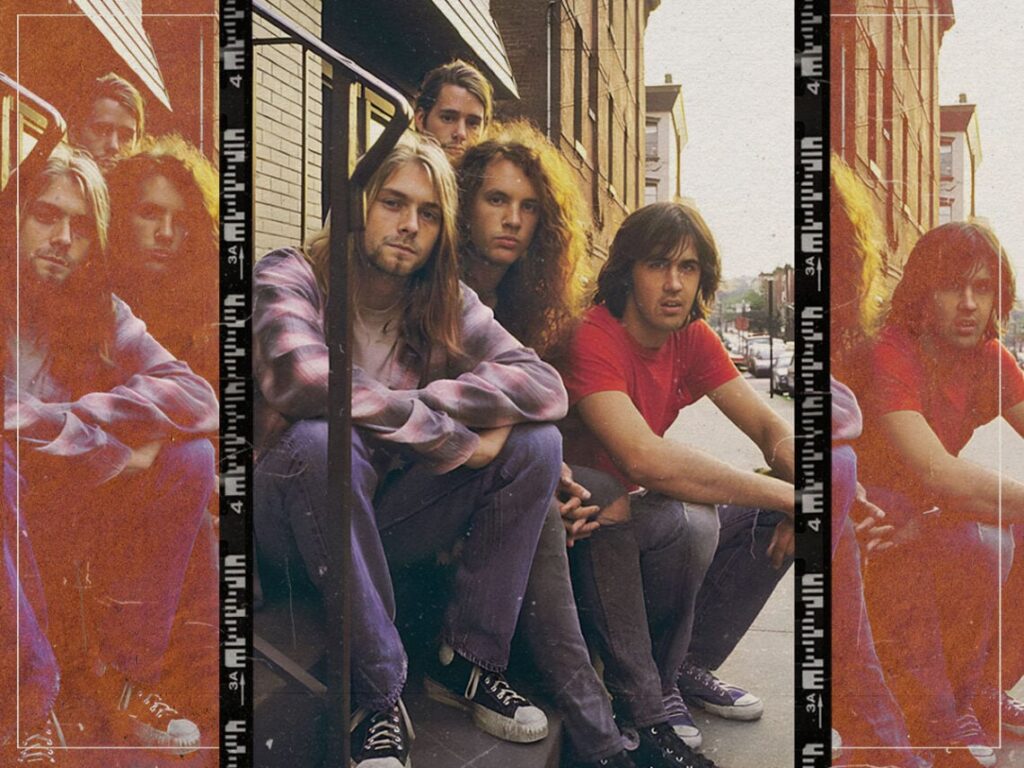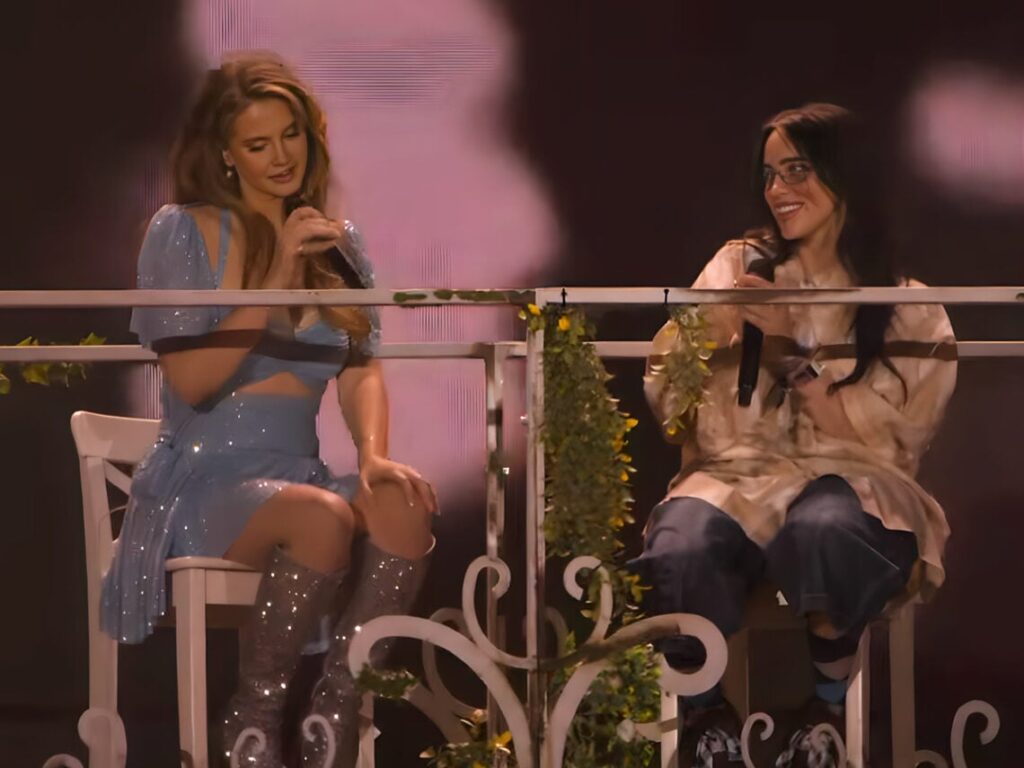Laura Marling on Her New Album
 Posted On
Posted On
“One day I’ll go back on tour and be infantilized again, that’ll be fabulous,” Laura Marling deadpans over the phone from London when we connected, bridging the time difference to talk about her newly-announced album, Song For Our Daughter. Marling was describing her steady cycle of touring as an “infantilized state,” noting that the strictness of the schedule, in turn, offers freedom — the headspace to get inside a song. Dark humor might be the most suitable coping mechanism when the possibility of performing live has been postponed indefinitely, but Marling is mostly in good spirits, despite the circumstances.
On the day we spoke, she should’ve been performing in Nashville — but most live concerts around the world have now been legally banned, along with public gatherings of any kind. After two weeks of touring in Australia during March was cut short quite suddenly due to public health concerns posed by COVID-19, Marling and her crew returned to London, first to quarantine and then to wait out the spread of the virus, as shelter-in-place orders advanced just as quickly.
Even the wisest songwriters aren’t immune to the pressure of trying to grasp what we’re currently living through, and Marling is just as confused and resigned to the unfolding chaos as the rest of us. Still, she’s eager to share the record, out Friday, as something that might be a balm or distraction within this time of quarantine. Song For Our Daughter was written over the course of the last three years but finished “a long time ago,” and was slated to be released in August via her new label, Partisan Records, until the sweep of COVID-19 shifted the entire globe into a strange, stilted mode of heartbreak, grief and uncertainty, all happening in isolation.
Given the turn of events, Marling felt like it was logical to release the album sooner rather than later — she announced its release on Instagram with a personal statement. “I’m not usually a fan of social media, or using social media myself,” she explained. “But I suddenly thought that I wanted to, I suddenly felt a real urge to try and offer something. So I started doing these live guitar tutorials, and it’s been quite nice. I felt like the only thing I can offer, really, is music. So why not just release the album now instead of putting it off and put it off for months on end.”
Context is key for unpacking Marling’s latest, which is something of a departure from her past work, at least in terms of process. Following the release of her sixth solo album, Semper Femina, in 2017, Marling did something of a 180. At 27, she’d been steadily releasing albums every two years (or quicker) for almost a decade. Writing the next record while on tour behind her current project allowed the songwriter to be incredibly prolific, and the sheer amount of critical acclaim and awards she’s accumulated since embarking as a teenager in 2008 is impressive. It is also, seemingly, exhausting.
Pivoting away from her longtime label, Virgin, and pursuing a side project, LUMP, with Mike Lindsay, Marling also enrolled in a Master’s program at an unnamed university to study psychoanalysis. Reflecting back on the industry that shaped her late teens and early 20s, perhaps through the lens of her studies, she was moved to write an album that is animated by, as her statement describes it, “the responsibility to defend The Girl.”
“I was very very young when I started my career — I was 16,” she remembered. “I see 16-year-olds now, and I’m amazed, astonished, at how young they seem. I was that young when I was starting out, without all of this revolution of thought and cultural perspective that’s happened in the last couple of years. That’s been phenomenal. I thought about my experiences as a younger woman and what I would’ve liked to have known, the confidence I would’ve liked to have had to protect myself. There are artists not that much younger than me, people like Phoebe Bridgers, who seem to have that ability to conduct themselves and protect themselves with a confidence I find tremendously inspiring.”
Currently, Marling doesn’t have any children, though she did work on Song For Our Daughter with her unnamed partner, who is also a musician. She cites her capacity to write songs with — or in front of — someone she’s personally close to as a leap of confidence in her own songwriting ability. “I felt that, essentially, writing Song For Our Daughter with somebody that I loved was really an important step for me,” she said. “And it was a bit of a culmination of all of my experiences up until then. Sometimes songs are prophetic, and they either manifest things into being or they encourage you into following the path.”
As far as devoting a project to children that she doesn’t have yet, Marling isn’t the first exemplary artist to go down that path, either. “I read the Maya Angelou book, Letters To My Daughter, a couple years ago,” she remembered. “It’s an astonishingly beautiful book written to her fictional daughter, and I thought that was a wonderful thing.” If she does become a parent one day, Laura said she hopes this record stands as an artifact for her children that dictates “a sense of confidence in their own autonomy, decisions, and their experience of how their life can be led.”
The core of the record is, unsurprisingly, contained in the title track, a lullaby-slow reflection on potential innocence lost, the hopeful guidance of parents, and how the young seem fated, regardless of warning, to repeat the mistakes of their elders. These themes — of innocence lost, or the cyclical trauma of generations — multiply themselves across the ten tracks contained here: Looking backward toward the story of her mother’s small unhappinesses on “Fortune,” squinting sideways at the girlish behavior of characters on “Strange Girl,” that Laura describes as an amalgamation of “all my friends and me,” and staring abandonment dead in the eye on “Held Down,” the song Marling chose to introduce the record when she announced it.
Demoed heavily in her basement home studio, co-produced with her longtime collaborator Ethan Johns, and mixed by another frequent colleague, Dom Monks, Daughter manages to feel like the most personal Marling record to date, even without a bevy of first-person songwriting narratives. There are few things more intimate than sharing the wisdom we wish a younger version of ourselves could wield, and the weapon — or shield — Marling has armed her fictional daughter (and us) with, is formidable.
“I feel in comparison with other records that I’ve made this record has a kind of hopefulness to it, an upbeatness to it,” she said. “I’m obviously devastated not to be touring, and I’m so incredibly grateful that I had two weeks in Australia to get a little taste of it. I’ve released seven albums so far, so I’m slightly fortunate in that I’ve done it a few times and I don’t feel like a big song and dance needs to be made of it really.”
It is a record that is, unwittingly, well-suited for a time when the whole world is reckoning with what kind of future we should build. Will we stay infantilized, stuck in our cycles, or put away childish things? Don’t we owe a world to those who are not yet born? The onus is on the living to fight for it — in song, in writing, and in isolation.
“I wrote the note introducing the album in the height of all of this global anxiety,” Marling said. “I feel like what that’s done is got rid of a lot of pretension. The world’s changed, and it doesn’t look like we’re going back anytime soon. But people have always and will always value music and its congregational qualities. Because it’s lovely to be together in a room and enjoy something like that. As soon as I can I’ll get back out there and go and play some solo shows. But for now, the album is a different thing totally, it’s a different form. And people can sit with it for a bit.”


